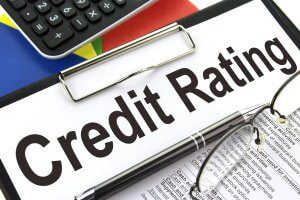Line of credit vs credit card: Which one should I use?
Part of good money management is being financially literate. While credit cards and lines of credit offer you the money you need, they are not the same. This post discusses the differences between a line of credit and a credit card.
“Learning about how credit products work is the best way to find the product that best suits your needs. This will let you use credit most responsibly and keep your debt and interest costs down. You need to keep in mind what you want the credit card or line of credit for. Don’t make your decision based on advertising or convenience,” says Jeff Schwartz, Executive Director, Consolidated Credit Canada.
Are you trying to build up good credit? It’s helpful to understand your options and to develop a strategy. We can help. Call one of our trained credit counsellors at [PHONE_NUMBER}.
Line of credit vs credit card: The Facts
Let’s look at the pros and cons of each. A line of credit (LOC) is a loan from your financial institution, with a pre-set limit. Options include a business or personal line of credit. Either way, you can draw on a line of credit to repay the amount you borrow. This credit is considered revolving, which means you can borrow from it as needed and repay it back. Unlike an installment loan, you won’t actually have to pay anything until you use it. As soon as you draw on your LOC, you are also charged interest. Your minimum payment requires you to pay interest and the principal combined.
Lines of credit are (but not necessarily) usually used for larger purchases. A LOC can be useful for larger projects. Typically, you wouldn’t use a line of credit for a major purchase like a car or a house. Instead, you’d take out a secured loan, like a mortgage or an auto installment loan.
They can help when a vendor doesn’t accept credit cards. Use the LOC to put a deposit down for a wedding or some other purchase requiring a large amount of money.
People commonly add a line of credit to bank accounts for overdraft protection. Using a line of credit to do a DIY debt consolidation can be a good strategy to reduce your debt load, as consolidating your debts allows you to pay them more quickly, with a line of credit typically offering lower interest rates than traditional credit cards.
Limits for lines of credit are often higher than credit cards and usually start at about $5000 up to hundreds of thousands of dollars for a Home Equity Line of Credit (HELOC). As the limits are higher, a LOC can be harder to qualify for. You need to have both good credit and proof of good income.
The costs
You can often bring your LOC rate down even more by securing it with equity in your home or other kinds of investment (i.e. a GIC or cash). The reason that the rate goes down is that when a LOC is secured, the bank takes on less interest.
Things to be Careful With
“It’s common for people to have a line of credit to use to make up for cash flow shortfalls like medical expenses, or when self-employed income fluctuates. Avoid using any kind of credit to cover living expenses. Instead, set up a budget to meet expenses with the cash that you do have, or turn to your savings,” says Schwartz. In addition, avoid resorting to a cash advance or payday loan at all costs.
People like to use a line of credit for investing purposes, like RRSP contributions. This is only a good idea if you intend to use the tax refund that you’ll get back to pay off the LOC.
For both credit cards and LOCs, the interest rates are variable, based on the prime lending rate set by the Bank of Canada. As that rate goes up, so will your payments. This is true for credit cards as well, but as balances are usually higher with a LOC, the increase in payments can create more of an impact.
While securing a LOC with collateral or your home will reduce your interest, be aware that it also creates a greater risk for you. If you don’t make your payments on time, or in full, you run the risk of losing your collateral. So, if you decide to secure your LOC with your home or another investment make sure that this is one of the first payments you make to avoid a default.
Credit Cards
Credit cards tend to be a better choice for smaller purchases, but usually only if you can pay the balance off every month. Unlike lines of credit, you have a grace period (usually 30 days) to pay off your card without incurring interest. Be aware that this grace period extends to purchases only. Interest still accrues on cash advances right away. Interest rates on credit cards tend to be significantly higher than with a line of credit.
Many credit cards offer reward programs, which is a clever way of getting your budget to go further (i.e. cashing in points for groceries, merchandise or travel). However, don’t get in the habit of using a card simply to get reward points. That backfires in a hurry when you start accumulating interest just to get a “reward.”
Credit cards are often more convenient and widely accepted, so how and where you’re going to use this credit product should figure into your decision, too.
Always read the fine print
Many credit card companies will offer introductory interest rates to entice you to sign up. Make sure you read the fine print and fully understand the rules around the offer. If you’re carrying a balance and the offer expires, you could be in for a shock as your debt grows quickly with unanticipated interest charges.
Ready to enjoy debt freedom? Speak to a trained credit counsellor today!




